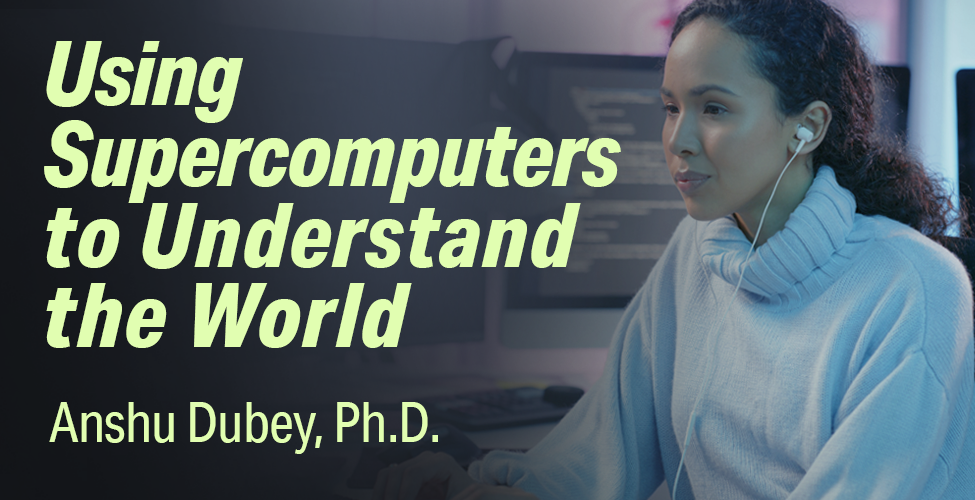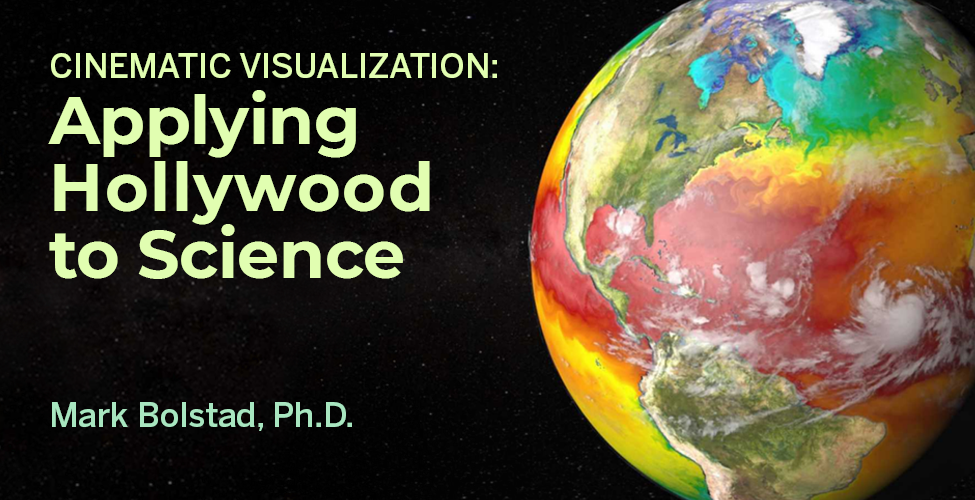STEAM Sustainable Horizons - Page Introduction
The Phoenix College STEAM Committee
Welcomes You to the Spring 2025
Sustainable Horizons Institute Lecture Series
STEAM professions—interdisciplinary fields that merge science, technology, engineering, and math with the arts—are the careers of tomorrow.
You're invited to hear from a scientist at the forefront of AI software innovation. Brought to you by a partnership between the STEAM Committee, and The Sustainable Horizons Institute, the annual series is a unique chance to learn about exciting research, as well as its applications in the workforce, and society. All PC students, faculty, and staff are encouraged to join.
Upcoming Sustainable Horizons Lectures

Wed, Feb. 19, 2025 | 12 pm | Virtual via ZOOM
PRE-REGISTER NOW. Registrants will receive a meeting link.
AI and Exascale Computing for Epidemiology:
Preparing for the Next Pandemic
Join Dr. Peter E. Nugent who'll present an innovative approach to enhancing epidemiological modeling using agent-based models (ABMs) and exascale computing. ABMs have proven instrumental in understanding and managing pandemics like COVID-19 by simulating how diseases spread among individuals and within communities. Despite their potential, ABMs face challenges in effectively integrating diverse data streams and addressing uncertainties in forecasting. The discussion will elaborate on:
• Advancements in the exascale-ready ABM code
• Modeling complex scenarios involving both individual agents and environmental factors like air or waterborne pathogens
• Creating workflows capable of generating accurate forecasts and guiding policy decisions with precision
You'll leave this lecture with greater familiarity of how computational science, data science, and high-performance computing can prepare us for future pandemics by optimizing intervention strategies and understanding uncertainties in disease spread.
The Speaker
Peter E. Nugent, Ph.D. is a leading researcher in the Applied Math and Computational Research Division at Lawrence Berkeley National Laboratory. With a Ph.D. in physics (astronomy concentration) from the University of Oklahoma, Dr. Nugent has contributed significantly to fields ranging from astrophysics to epidemiology. His work harnesses the power of high-performance computing to tackle large-scale problems, including modeling and forecasting the spread of infectious diseases. Photo courtesy University of California-Berkeley.
Past Lectures

Wed, Oct. 23, 2024 | 1 – 2:30 pm | Virtual via ZOOM
PRE-REGISTER BY OCT. 22. Registrants will receive a meeting link.
Mystic & Pathos:
The Summer Project that Evolved Into a Career of Research in AI,
Machine Learning & High-Performance Computing
Join Dr. Michael McKerns who'll discuss the implications of two software tools, Mystic and Pathos, on automation, modeling, and the design of experiments under uncertainty. He'll also expand on their potential to improve:
• error mitigation in quantum computing
• efficiency in quantum sensing experiments
• automated control of particle accelerators
• learning of robust flux limiters in fluid dynamics simulations
• development of highly accurate surrogates for the nuclear equation of state
Mystic vs. Pathos Mystic software provides tools that facilitate the creation of complex workflows for artificial intelligence, machine learning, optimization, and uncertainty quantification. Pathos software enables users to
effortlessly convert Python code to run in asynchronous parallel across hierarchical networks of threads, processors, nodes, and machines.
Machine Learning is shaping the way we analyze data. Through algorithms, Machine Learning (ML) identifies data patterns to predict outcomes or develop solutions. What makes this remarkable? ML enables computers to make decisions and perform complex tasks, without explicit programming.
You'll leave this lecture with greater familiarity of how AI, ML and high-performance computing are advancing scientific research and experimentation.
The Speaker
Michael McKerns, Ph.D. has been a staff scientist focused in the information sciences at New Mexico's Los Alamos National Laboratory since 2018. He specializes in developing software that utilizes AI and machine learning in the optimization, and predictive modeling, of complex physical systems under uncertainty. A VP and co-founder of the UQ Foundation, McKerns provides consultation to the energy, financial and technology markets.
A primary author of multiple open-source scientific software packages, his software has been downloaded over half a billion times. McKerns earned his Ph.D. in Physics from the University of Alabama at Birmingham.

Tues, Apr. 16, 2024 | 2 – 3:30 pm | Virtual via ZOOM
PRE-REGISTER BY APR. 15. Registrants will receive a meeting link.
Ethics in Machine Learning
The topic of artificial intelligence, or AI, has dominated the news since late 2022, when Generative AI became accessible through the software ChatGPT. Its ability to create original content—and interact with humans—has provoked both excitement and fear worldwide. Generative AI's ability to exploit human language has understandably raised serious ethical implications, but is it overshadowing other categories of AI that deserve our attention? Consider Machine Learning, the most widely utilized form of AI today.
Machine Learning is shaping the way we analyze data. Through algorithms, Machine Learning (ML) identifies data patterns to predict outcomes or develop solutions. What makes this remarkable? ML enables computers to make decisions, and perform complex tasks, without explicit programming. Whether you're applying for a car loan, or using model training to design a trial for a new pharmaceutical compound, ML can impact any arena where large amounts of data are used to form decisions.
Important Questions for Discussion How do we ensure the right data is analyzed? What is owed to the people who provided the data? How do existing legal standards impact the use of Machine Learning? Following the talk, you'll be invited to participate in a discussion related to the roles ML should play in research modeling, and the profound effects it may present.
This lecture will help you understand the implications of Machine Learning, data science, and professional ethics on:
| • Applied & Computational Math • Computational Science & Engineering |
• Computer Science • High-Performance Computing |
The Speaker
Based in Albuquerque, Jay Lofstead, Ph.D. represents the Center for Computer Research, at Sandia National Laboratories. A principal member of technical staff within the Scalable System Software department, his work focuses on infrastructure to support all varieties of simulation, scientific, and engineering workflows, with emphasis on:
| • IO • middleware • storage • transactions |
• operating system features to support workflows • containers • software engineering • reproducibility |
A co-founder of the IO500 storage list, he was a recipient of a 2013 R&D 100 award for his work on the ADIOS IO library.
Throughout the year, he works extensively to support student mentoring and diversity programs for high school and college students. Dr. Lofstead graduated with a BS, MS, and Ph.D. in Computer Science from Georgia Institute of Technology.

Tues, Mar. 5, 2024 | 3 – 4:30 pm | Virtual via ZOOM
PRE-REGISTER BY MAR. 4. Registrants will receive a meeting link.
Projecting the Future: Quantifying Uncertainties
in How the Climate Will Change
Record-breaking heat waves, drenching rains, severe floods, years-long droughts, devastating hurricanes, and extreme wildfires...events like these have become more frequent, and intense. Over the next century, societies and ecosystems are expected to endure more extreme weather, as Earth's climate evolves from continued fossil fuel consumption. Explore a burgeoning research field at the forefront of interdisciplinary science!
How certain are we in projections about the distant future? The scientific question is not whether the climate will change, but how likely it will change by a given amount. The greatest challenge? Every prediction of a physical theory comes with error bars—arising from data limitations, and the need for approximations.
Learn how researchers are estimating possible climate futures. This talk will discuss the general mathematical formalism of statistical uncertainty quantification, and how it is being applied within the U.S. Department of Energy, and other research institutions, to estimate the plausible range of possible climate futures.
Attending this lecture will improve your familiarity with research methods like:
• Bayesian parameter estimation for nonlinear regression
• Monte Carlo sampling
• Sensitivity analysis
• Model averaging
• Surrogate modeling, or emulation of expensive computer simulations
You'll learn how these research methods can be applied to our understanding of:
• Probabilistic predictions of global warming
• Climate feedback simulations
• Sea level rise from Antarctic ice sheet disintegration
• Coastal flooding
PRE-REGISTER BY MARCH 4
Dr. Urban will discuss related academic paths, and career opportunities, if time allows. This engagement is made possible by the Phoenix College CRLC, Computational Research Leadership Council.
The Speaker
Nathan Urban, Ph.D. serves as group leader of the Applied Mathematics group at Brookhaven National Laboratory's Computational Science Initiative (CSI). He's previously conducted research at Los Alamos National Laboratory, Princeton University; and Penn State University, where he also earned a doctorate in Matter Physics.
Using Supercomputers to Understand the World
Tues, Apr. 11, 2023 | 3 – 4:30 pm | Virtual via ZOOM
PRE-REGISTER BY APR. 10. Registrants will receive a meeting link.
Throughout history, humankind's insatiable curiosity about the surrounding world has been a constant source of innovation. A relatively recent development, the supercomputer, has become integral to our investigations of the unknown, through the process of:
• Expressing what we want to know through a mathematical model;
then, devising methods for solving the model
• Translating those methods into scientific software to run on supercomputers
• Analyzing the results for insight
Learn about the development of FLASH, a dynamic software that evolved from its original intent—to investigate supernovas—to demystifying a diverse range of phenomena, from the flow of blood through the Pacemaker, to the impact of earthquakes on nuclear reactor rods.
Cinematic Visualization: Applying Hollywood to Science
Tues, Mar. 7, 2023 | 3 – 4:30 pm | Virtual via ZOOM
PRE-REGISTER BY MAR. 6. Registrants will receive a meeting link.
Cinematic Visualization, also known as Impactful Visualization, uses techniques from movies and games to provide rich story-telling experiences.
As educators and professionals work to restore trust in science, Cinematic Visualization presents major possibilities for communicating ideas to the public. Its ability to quickly engage wide audiences, and hold that attention through advanced rendering, lighting, and animation, can be applied to scientific data. Learn how these design methodologies, developed for gaming and movies, differ from traditional scientific visualization.
Attending this lecture will improve your familiarity with:
• Computer Science; Data Science
• Scientific Visualization, Ray Tracing, Monte Carlo Methods, Advanced Lighting and Shading
Mark Bolstad, Ph.D.
Dr. Bolstad has practiced in a wide range of scientific disciplines, from aerospace to environmental protection to biomedical and defense research. He's led three different visualization labs and HPC teams.
After more than 20 years in visualization and computer graphics, he returned to school to pursue a doctorate in Computer Science. Dr. Bolsted's thesis focused on Rendering Massive Models, asking the poignant question: how do designers render models that exceed 4 billion elements?
The Sustainable Horizons Institute (HSI)
The Sustainable Horizons Institute
The Sustainable Horizons Institute is a California-based non-profit composed of award-winning, scientists, communicators, and educators. The institute is engaging with communities by:
• Working with top scientists, engineers, and researchers to create ecosystems welcoming of professionals from diverse backgrounds and perspectives
• Supporting, as well as mentoring, scientists and engineers from all communities
Learn more about the SHI's work at shinstitute.org.


